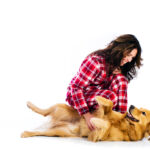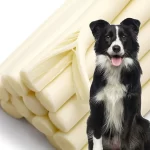Can Dogs Eat Raw Butternut Squash
When it comes to feeding our furry friends, it’s important to know what foods are safe and healthy for them. One food that may come to mind is butternut squash. But can dogs eat raw butternut squash? Let’s explore the answer in this comprehensive article.
Firstly, let’s take a look at the nutritional value of butternut squash. This vegetable is packed with vitamins A and C, as well as fiber and potassium. It’s also low in calories, making it a great addition to any healthy diet. However, just because something is good for humans doesn’t mean it’s necessarily good for dogs.
So, can dogs eat raw butternut squash? The short answer is yes, they can. But there are some things to keep in mind before feeding this vegetable to your furry friend.
One important aspect to consider is the size of the squash. If you’re planning on giving your dog a small piece of butternut squash, make sure it’s chopped into bite-sized pieces. This will help prevent choking or digestive issues.
Another thing to keep in mind is the skin of the squash. While humans may enjoy eating the skin, dogs have a harder time digesting it. It’s recommended that you peel the skin off before giving your dog any butternut squash.
In terms of cooking methods, raw butternut squash is safe for dogs to eat. However, some pet owners prefer to cook it first to make it easier for their furry friend to digest.
It’s important to note that while butternut squash is safe for dogs to eat in moderation, it should not be the main component of their diet. Dogs require a balanced diet that includes protein and other essential nutrients.
Now that we’ve covered whether or not dogs can eat raw butternut squash, let’s take a look at some potential benefits and drawbacks of feeding this vegetable to your pup.
Benefits:
1. Vitamins and minerals: As mentioned earlier, butternut squash is a great source of vitamins A and C, as well as fiber and potassium. These nutrients can help support your dog’s overall health.
2. Low in calories: If your dog is overweight or needs to maintain a healthy weight, butternut squash can be a great low-calorie treat option.
3. Digestive health: The fiber in butternut squash can help promote healthy digestion in dogs.
Drawbacks:
1. Allergic reactions: While rare, some dogs may have an allergic reaction to butternut squash. Keep an eye out for symptoms such as itching, swelling, or difficulty breathing.
2. Digestive issues: Some dogs may experience digestive issues such as diarrhea or vomiting if they eat too much butternut squash at once.
3. Imbalanced diet: While butternut squash can be a healthy addition to your dog’s diet, it should not make up the majority of their meals. Dogs require a balanced diet that includes protein and other essential nutrients.
In conclusion, dogs can eat raw butternut squash in moderation as long as it’s chopped into bite-sized pieces and the skin is removed. However, it should not be the main component of their diet. As with any new food, it’s important to monitor your dog for any signs of allergies or digestive issues. And remember, feeding your furry friend a balanced diet is key to their overall health and wellbeing.
So go ahead and treat your pup to some tasty butternut squash! Just don’t forget to peel off the skin first – unless you want them to have an interesting trip to the bathroom later on!



